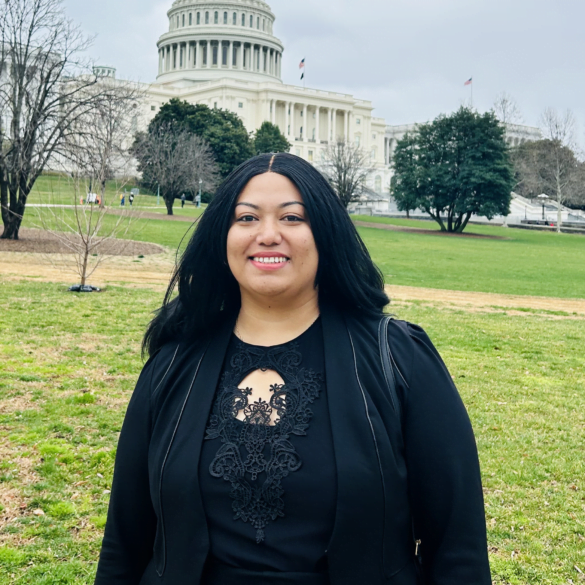Tall Poppy Syndrome is the cultural habit of cutting down those who stand out or succeed, often out of fear or jealousy. It’s when people would rather see you stay small than see you succeed, even if your success would benefit everyone. In the Pacific, this mindset is one of the invisible chains keeping our region poor, costing us growth, jobs, and time.
Since creating Siuhuu, we have met with many government agencies and organisations across the Pacific to discuss collaboration. Instead of partnering to move our people forward, many try to create their own version of Siuhuu, despite regional marketplaces already existing, and despite the complexity, cost, and effort required to make e-commerce work in the Pacific.
This is not about fearing competition. We don’t. Siuhuu is already fully operational, solving the e-commerce challenges others only talk about. It is about mindset. While other regions collaborate to progress, we hold ourselves back by duplicating what already exists while failing to build the systems we desperately need.
Existing Regional Marketplaces (and Their Limitations)
Here are some regional marketplaces:
- Beehive (Tonga) – A local initiative but struggles with scalable logistics and cross-border payments.
- SamoaMarket is limited to local listings without integrated payments
- Vitikart (Fiji) – Useful locally but lacks regional interoperability.
- MyCash Marketplace (PNG) – Tied to mobile money but limited in variety and reach.
- Solomon Marketplace (Solomon Islands) – Small user base, no cross-border integration.
- PacificTrade Invest Marketplaces – Focuses on export promotion, not everyday consumer trade.
- Island-specific Facebook groups – Informal selling, no secure payment or logistics systems.
These platforms exist but have not solved the region’s e-commerce puzzle at scale. Payment gateways remain fragmented. Logistics remain unreliable. Addressing systems are almost non-existent.
What Siuhuu Has Solved (So the Pacific Can Focus on What Matters)
Siuhuu has cracked e-commerce for the Pacific:
✅ Regional Reach: Connects all Pacific nations for cross-border trade.
✅ Integrated Payments: Secure payments for locals and diaspora.
✅ Built for Low Connectivity: Works on low-bandwidth networks.
✅ Supports Small Businesses: Easy tools for micro and small sellers.
✅ Diaspora Ready: Lets diaspora buy directly for families back home.
✅ End-to-End Engine: Full storefront, payment, and support in one.
✅ Pacific Built: Made for Pacific needs, removing real barriers.
✅ Logistics Ready: Built to integrate delivery once infrastructure is ready.
Now, instead of duplicating Siuhuu, the Pacific should focus on:
- Fixing online payment systems for secure, accessible transactions.
- Improving logistics networks to strengthen last-mile delivery.
- Numbering houses for real addresses, which is critical for effective e-commerce. For example, Samoa started a house numbering project, but it stalled, leaving post offices and couriers without clear systems.
We have spoken with leaders from post offices and shipping companies across the region. They all highlight the lack of addressing as a main bottleneck. Fix this, and we unlock scalable e-commerce, digital trade, and job opportunities across the Pacific.
What Happens When We Compete Instead of Collaborate
When we duplicate what already works, we:
- Waste scarce funding.
- Divide our limited talent pool.
- Confuse customers.
- Slow down progress.
Meanwhile, the real problems go unsolved: no unified payments, poor logistics, and lack of address systems.
How Other Countries Do It Better
Let’s look at countries that moved ahead by collaborating rather than cutting each other down:
🇦🇺 Australia
The government didn’t try to build its own Afterpay; it backed fintech regulations and funding, enabling Afterpay to thrive globally.
🇺🇸 USA
Silicon Valley’s ecosystem thrives on collaboration between universities, investors, and startups. Apple, Google, and Tesla succeeded because the system supported them, not because everyone tried to copy them.
🇸🇬 Singapore
Partners with private players to build logistics and digital payments instead of competing with them, helping it become a global trade hub.
These countries are wealthy because they build together, not apart.
We Need to Stop Competing at the Lowest Level
It is painful to see our people wasting time, money, and resources duplicating what already exists when the Pacific urgently needs us to collaborate. While others move forward, we stall ourselves because we would rather compete than partner. We fear others’ success instead of seeing it as a win for all.
Every day, we wake up to new messages from across the Pacific. Not messages asking to collaborate, but messages from people wanting to build another Pacific platform – copying what Siuhuu has already built. They don’t see the years of work, the money, or the sleepless nights it took to get Siuhuu to this level. They don’t realise the resources we have in Sydney that many Pacific regions don’t, or the tech challenges we’ve solved so our people can trade online. It’s heartbreaking to see precious time and resources wasted duplicating what already exists, instead of joining forces to lift the Pacific together. It’s Tall Poppy Syndrome in action. It needs to stop if we truly care about our people’s future.
Imagine if the funding and energy spent on creating copycat platforms were used to build payment systems, logistics, or digital addressing solutions. That is how we grow. That is how we move the Pacific forward.
Siuhuu Is Ready. We’re Just Waiting for You.
We share this out of love for our people, not pride. Siuhuu is open for collaboration with governments, organisations, and individuals who want to see the Pacific advance. We all want progress, but we cannot do that if Tall Poppy Syndrome keeps holding us back.
It is time to stop competing over what already exists and work together to take the Pacific to a level we have never reached before.
Siuhuu is about to launch its own app and will continue doing its part. The rest is up to us all.
If you want the Pacific to progress, share this message with your networks and leaders. Let’s build a region that collaborates instead of competing at the lowest level, ensuring the Pacific steps forward into the digital trade era for all our people.
And if you’re serious about creating change, take the next step:
- Advocate for better payment systems, logistics, and addressing in your country.
- Encourage your organisations and leaders to collaborate instead of duplicate.
- Use platforms like Siuhuu that are already working, so we can focus our limited resources on what’s missing.
- Reach out if you’re ready to partner and build a stronger Pacific economy, together.
The Pacific’s future won’t change by words alone. It will change by action, unity, and the courage to do what’s best for all our people.
Related posts
Meet the Founder

Akanesi Kaufusi, also known as Akanesi Tohotoa, a Tongan native, embodies resilience and vision, having transformed her personal challenges into a pioneering business venture. Akanesi moved from Tonga to New Zealand to further her studies, where she earned degrees in Business and Theology. During this period, she faced difficulties locating Pacific Island-owned businesses in her vicinity. This struggle planted the seed for what would become her groundbreaking initiative.
Learn more

